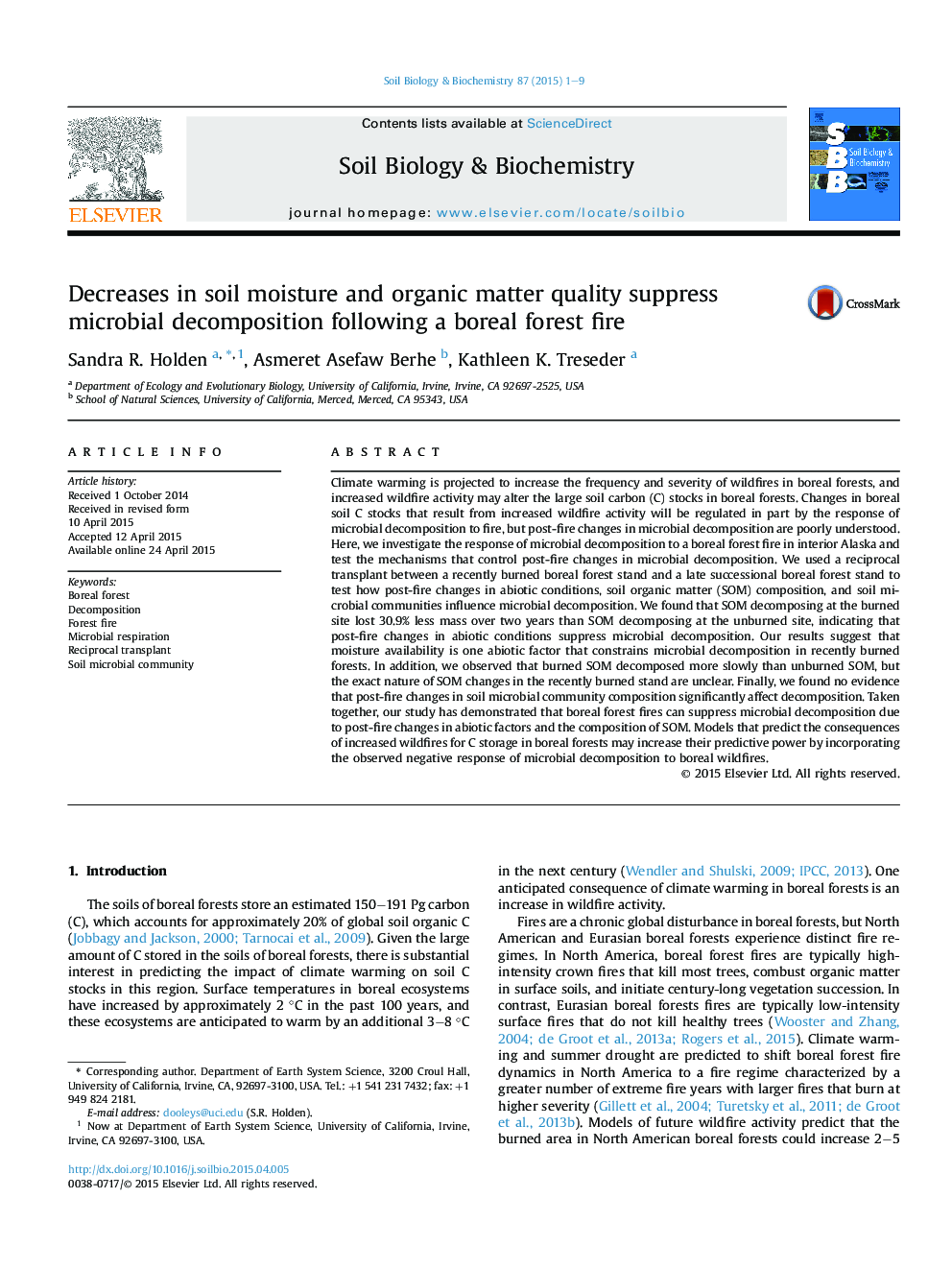| کد مقاله | کد نشریه | سال انتشار | مقاله انگلیسی | نسخه تمام متن |
|---|---|---|---|---|
| 2024495 | 1542597 | 2015 | 9 صفحه PDF | دانلود رایگان |
• Decomposition was slower in a recently burned boreal forest than in a late successional boreal forest.
• Moisture availability may constrain microbial decomposition in recently burned boreal forests.
• Burned soil organic matter decomposed more slowly than unburned soil organic matter.
• Post-fire changes in microbial community composition did not affect decomposition.
Climate warming is projected to increase the frequency and severity of wildfires in boreal forests, and increased wildfire activity may alter the large soil carbon (C) stocks in boreal forests. Changes in boreal soil C stocks that result from increased wildfire activity will be regulated in part by the response of microbial decomposition to fire, but post-fire changes in microbial decomposition are poorly understood. Here, we investigate the response of microbial decomposition to a boreal forest fire in interior Alaska and test the mechanisms that control post-fire changes in microbial decomposition. We used a reciprocal transplant between a recently burned boreal forest stand and a late successional boreal forest stand to test how post-fire changes in abiotic conditions, soil organic matter (SOM) composition, and soil microbial communities influence microbial decomposition. We found that SOM decomposing at the burned site lost 30.9% less mass over two years than SOM decomposing at the unburned site, indicating that post-fire changes in abiotic conditions suppress microbial decomposition. Our results suggest that moisture availability is one abiotic factor that constrains microbial decomposition in recently burned forests. In addition, we observed that burned SOM decomposed more slowly than unburned SOM, but the exact nature of SOM changes in the recently burned stand are unclear. Finally, we found no evidence that post-fire changes in soil microbial community composition significantly affect decomposition. Taken together, our study has demonstrated that boreal forest fires can suppress microbial decomposition due to post-fire changes in abiotic factors and the composition of SOM. Models that predict the consequences of increased wildfires for C storage in boreal forests may increase their predictive power by incorporating the observed negative response of microbial decomposition to boreal wildfires.
Journal: Soil Biology and Biochemistry - Volume 87, August 2015, Pages 1–9
